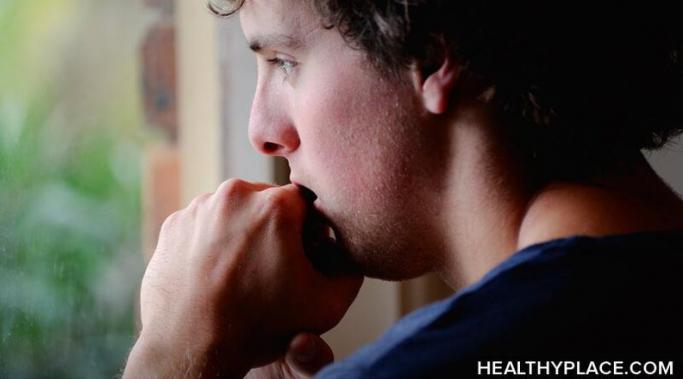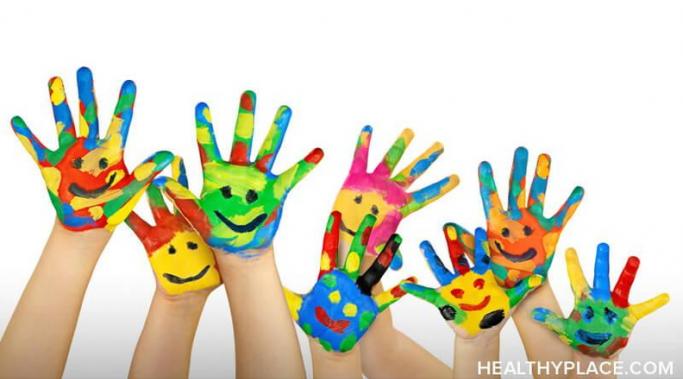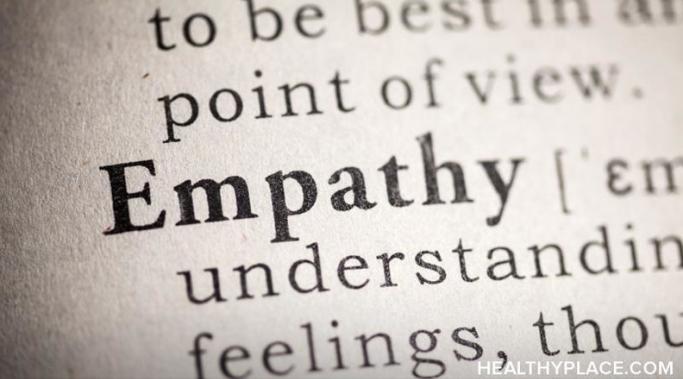I think we've all heard it - people using mental illness terms to describe something other than mental illness. But if you say, "The weather is sure schizophrenic today," is that okay? How about if you say, "Man, that girl sure is bipolar," after your friend gets angry with you. Is that okay?
In this video I look at ways that people using mental illness terms outside of talking about serious health issues and discuss whether this is acceptable or not.
Talking About Bipolar
This morning, a girl from the United States (I’m in Canada) contacted me and said she had taken 40 pills in a suicide attempt and now needed help immediately.
Please don’t do this.
Please don’t treat the internet like it’s 9-1-1. It isn’t.
It just so happened that I was checking the comments on my blog three minutes after this girl posted this comment so I caught it in time. (Help was called.) But I very much could have missed it. It could have taken me hours to get to this comment. I get many comments and emails and sometimes it takes me a long time to get around to reading them, let alone responding. I am, in no way, an emergency service.
Reaching out to someone is always better than reaching out to no one, but please, if you need mental health help, know who to reach out to.
Many of us know a person who has suffered a bad bipolar outcome. Perhaps the person has lost their friends and family because of bipolar. Perhaps the person lost their job because of their bipolar moods. Perhaps the person became so unwell they ended up on the street. Perhaps the person was driven to suicide.
Those are all very scary and worrying outcomes from a mental illness and, the trouble is, they’re real. I can’t take away your fear and worry by telling you that these things don’t happen because that would be a lie. These things do happen, every day.
But that doesn’t mean that there aren’t things you can do to fight the fear and worry that surrounds bipolar disorder.
Mental illness isn't something that only exists in adults, the mental health of kids and teens is crucially important too. Talking to kids about mental illness early is critical.
I deal with suicide a lot in my writings. I’ve talked about people who have just attempted suicide, those left behind by suicide and the family and friends of those who have attempted suicide, among many other subjects. That’s because suicide is a subject that I think is very important. It’s critical to break down the walls of silence that keep people who have contemplated or attempted suicide at arm’s length from everyone else. Thinking about suicide or attempting suicide doesn’t mean there’s anything wrong with you; it just means that you have sought a way out of an extraordinary amount of pain that wasn’t the best way.
But the way in which suicide is written about matters because of a phenomenon known as suicide contagion. This is the act of copycat suicides and believe it or not, it is a real problem. The way a suicide is reported in the media actually affects the number of people who attempt suicide.
So if you plan on talking about suicide – and I encourage you to do so – think about these guidelines on how to do it.
When I speak to kids about my experience with bipolar disorder, really, I have a series of failures to explain. I tell them how treatment after treatment failed. I talk about drug failures, the failure of the vagus nerve stimulator and the failure of electroconvulsive therapy. I lot of my sentences have the word, “unfortunately,” in them.
And after one of my presentations last week, one person asked what I would say to someone who was going through a similar experience. I thought that was a very important question.
So here’s what I would say to someone who’s experiencing treatment failure.
I first started receiving psychiatric treatment when I was 20 years old. At that time, I was pretty separated and not very attached to my parents. Nevertheless, they and their opinions did have an impact on me. And when I told my mother I had bipolar disorder her reaction was akin to not believing me. She was entirely ignorant about mental illness (and to be fair, I had been too) and mental illness treatment.
She, naturally, wanted me to treat this problem with herbs and other nonsense. And in spite of the fact that I was detached from this woman, her lack of support affected me. At the time, all my energy was being used to fight bipolar disorder, and now I had to fight her too. It was kicking me while I was down. Way, way down. And while she didn’t see it that way, I can attest to the fact that it sure as heck felt that way.
But luckily for me, I was not under her care. Luckily, even though she eventually pressured me into trying out alternative nonsense, I still got the real, medical help I needed. Had I have been younger, this might not have been the case.
And unfortunately, some youth are in this position right now. Some youths feel they have a mental illness and are in the charge of their parents’. And some youths have even told their parents that only to be met with a wall of disbelief or told they’re “overly dramatic.”
I feel for these youths. They’re in a really tough spot. But there are things youths can do even if a parent doesn’t believe their son or daughter has a mental illness and refuses to support their desire to get help.
A get questions from all sorts of family members and friends of people with mental illnesses and, luckily, many of these people want to help. The trouble is people feel intimidated by a diagnosis of mental illness. They don’t even know where to start to help. This is completely normal. A probable lifetime diagnosis is enough to make anyone feel powerless.
But you are not powerless. If you love someone with a mental illness, there are many things you can do to help.
O Romeo, Romeo! wherefore art thou Romeo? Deny thy father and refuse thy name; Or, if thou wilt not, be but sworn my love, And I'll no longer be a Capulet.
There’s a piece of knowledge stuck in a cranny of my mind. Shakespeare. An important guy who wrote some important works, to be sure, and we all study him, for good reason. But how many of us use Shakespeare in our lives? Not too many, I’d wager.
And yet I don’t recall a single class being taught on mental illness. Not one reference to the signs of suicide despite it being the end to Romeo and Juliet, the same play stuck in my mind's crannies. Not one reference to mental illness in my education. And one-in-four people could use that later in their lives.
It’s an interesting question, isn’t it? You have a life-altering illness that affects the very way your brain works. Do you actually have to tell people that? Do you have to tell people you have bipolar disorder?
Well, like with everything in life, it depends.





![MP900390526[1]](/sites/default/files/styles/blog_listing/public/uploads/2013/05/MP9003905261.jpg?itok=8oVaR4Fn)



![MP900177900[1]](/sites/default/files/styles/blog_listing/public/uploads/2013/03/MP9001779001.jpg?itok=4-Nio57P)